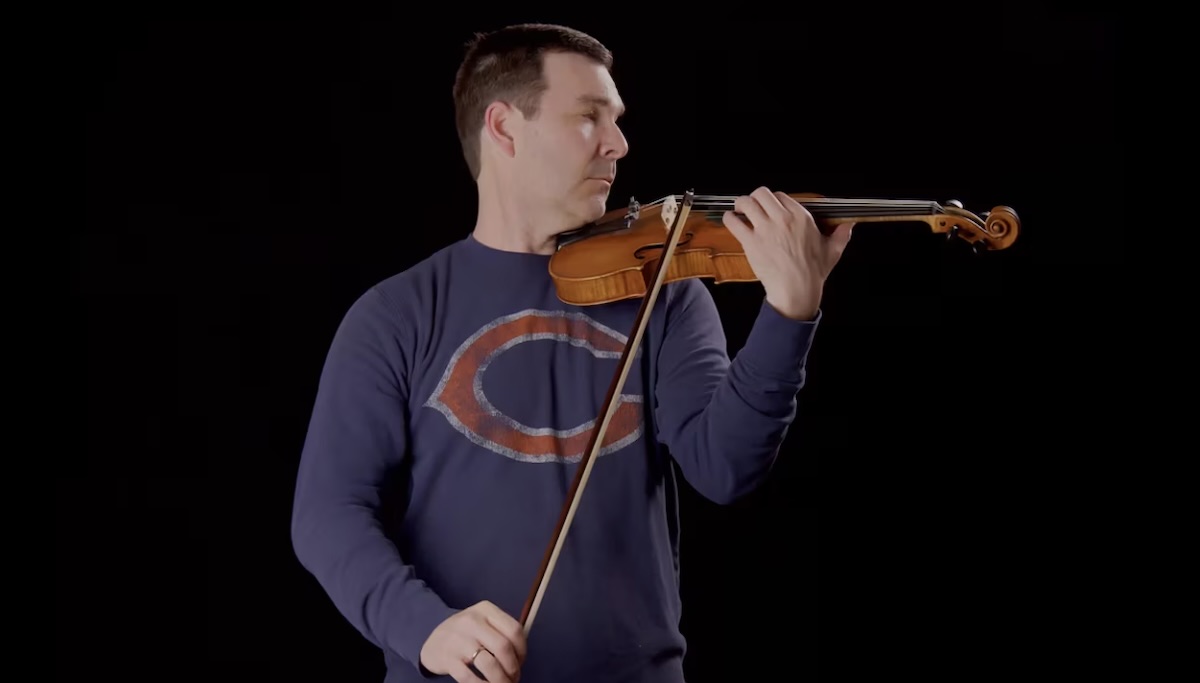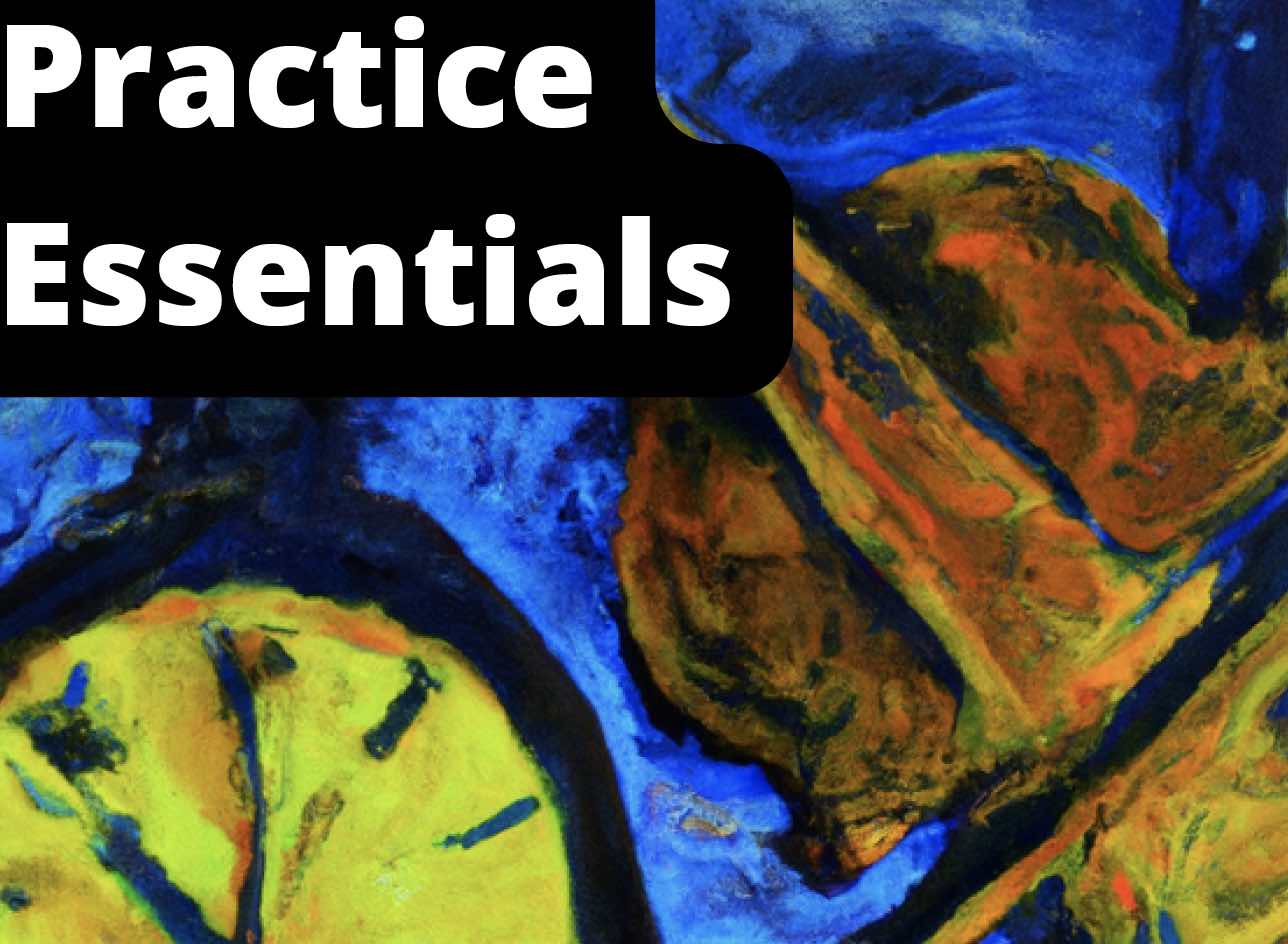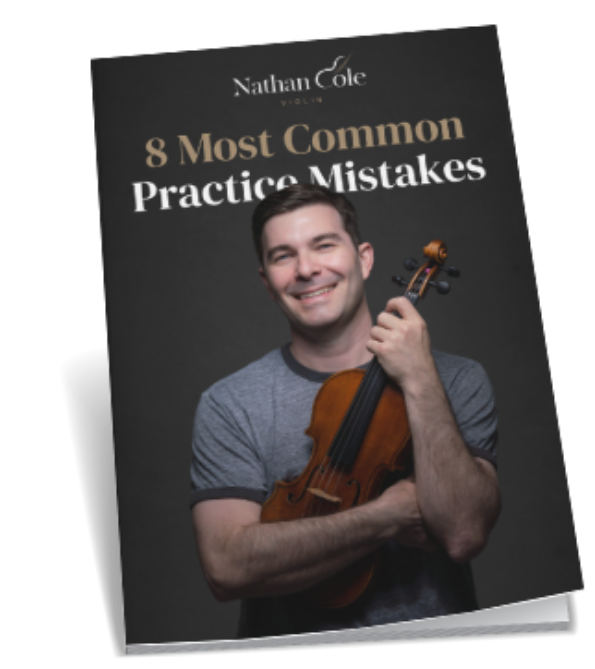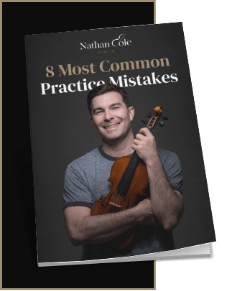NY Phil Audition Challenge Week 13

One week down, 13 to go! If you haven’t yet completed the Week 14 assignment, have no fear. In the interest of keeping more of you in the game, I’m giving you until the end of this Sunday to complete both assignments. This way you can get the big bonus at the end for completing all the assignments. But after this time, we’re sticking to our deadlines.
There are so many misconceptions about auditions that it’s hard to know where to start when debunking them! Surely one of the biggest is that you must play absolutely perfectly or you’ll be cut. If that were true, nobody would ever win an audition! Perfection is simply not attainable. It’s a target to aim for, but not a realistic goal. Certainly those players who win big auditions play at a stellar level, but they make mistakes here and there. The question is, where and how?
Another misconception is that everyone comes into auditions playing a great concerto (the old “any kid from conservatory can play a flawless Tchaikovsky” line) but that the real test comes in the excerpts. Some people do play great concertos and lousy excerpts, but that’s actually pretty rare. The fact is that the most important playing of any audition is the first selection. Usually that’s a concerto. For you, it will be the Mozart concerto exposition.
First impressions are crucial in real life. Just think about what happens when you meet someone: within a few seconds you form a mental picture of them. It’s unavoidable! This picture shares some things with the actual physical appearance of the person standing before you; there’s plenty of overlap. But instinctively you emphasize certain details over others. Some you ignore, and others stand out. Have you thought about what people notice about your appearance at first glance? You’ve been given (or have worked for) a basic body type, and you wear clothes over that body. You may or may not accessorize. You may be impeccably, acceptably or sloppily groomed and made up. And the way you use your voice and gestures could be low-key or flamboyant.
You’ve seen all of these traits in the people you’ve met. And when you make the subconscious decision as to whether you like a person, these traits don’t matter so much individually, unless one in particular stands out so much that it’s impossible to ignore! It matters, though, how the traits work in concert. Therefore, if an audition is like a blind date, or more accurately a “speed dating” session, everything must come together quickly and in harmony. There is a range of generally attractive body shapes, and for each of those there are clothes to complement and hide the inevitable imperfections. Some people can pull off “risky” humor, but there are some jokes that should never be told on a first date, and some never at all! Makeup, skillfully applied, enhances facial shapes. But there is always a point at which the makeup is noticed rather than the face.
The parallels to violin playing, while not drawn exactly, exist nonetheless: sound quality, phrasing, vibrato. There is a range for each attribute that qualifies as acceptable. There are many combinations that qualify as pleasing. And a few could be called great. Greatness, achieved as a first impression and sustained over the course of several minutes, can win an audition.
That’s why one piece of good advice holds for dating and playing: be yourself. It’s easy to spot the person in the room who is wearing something that’s just not “them”. Either their outfit doesn’t fit their body type, or the whole package is just “too much”. You feel a bit sorry for them, and you may even say to yourself, “if only they just toned it down a bit, they’d really look great!” Committees hear this kind of playing all the time. Chicago concertmaster Robert Chen once said of a candidate: “If they don’t stop trying to be [Pinchas] Zukerman, they’re going to hurt themselves!”
It’s even easier to spot dishonesty or fakery in a person. Instead of sympathy, the reaction is usually aversion, even disgust! Dishonest playing, effect without substance, turns off a committee very quickly. Giant swings in dynamics, extreme sound colors, and maximum articulation will come off as dishonest, unless they’re clearly written into the music.
It can be frustrating to “be yourself” in your violin playing. Who are you, exactly? And should you try to change who you are over the course of this Challenge? I suspect that by going through the Challenge, you very well may change certain things about your personality, both on the violin and away from it. But don’t make it a conscious decision just yet. Continue “working out” with your scales and etudes in order to get yourself into shape. And open your ears to a violin sound that pleases you. Chances are, it will be pleasing to your listeners as well. Focus now on quality and comfort rather than execution or perfection.
In the accompanying video I demonstrate some of the exposition of each Mozart concerto option: 3, 4 and 5. I don’t go into every stylistic choice that you can make. Rather, I emphasize the importance of sound quality no matter the dynamic or technical challenge. I pay special attention to the opening, as you should.
Week 13 Assignment
Your video should include a performance of your Mozart concerto exposition. Focus on great sound no matter what’s going on in the music. Remember, you still have time to change your mind if you go through this assignment and decide that the concerto you’ve chosen isn’t quite “you”! In addition, I’d like for you to work on the Schumann scherzo with all notes slurred. This helps you focus on the left hand and its action: smoothness and evenness. Play as much of the scherzo as you’re comfortable with, slurring the notes together and changing bows when necessary.

Scales: The Road
to Repertoire
Even if you’ve never played a scale before, violinist Nathan Cole of the Los Angeles Philharmonic will guide you through scale routines that meet you where you are, and build progressively alongside your playing.








Comment section